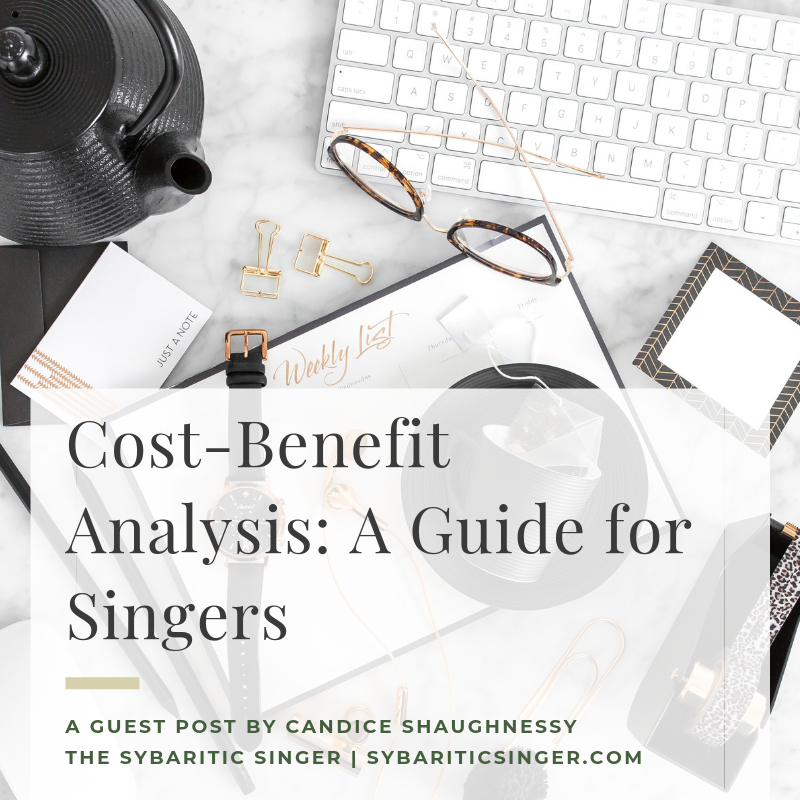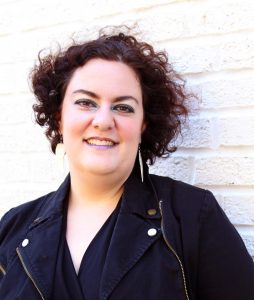By Candice Shaughnessy, Special to the Sybaritic Singer
“I’m poor.”
If there was one line that defined my twenties, this was it. I graduated with my undergraduate degree in music education in 2010. The major recession had occurred only two years prior. Full-time music education jobs were scarce and I was considering a career transition.
Therefore, my twenties were a lot of working “the hustle” to make my life work as a musician. As musicians, we all know what “the hustle” is. I would wake up at 5:00 a.m., go to my substitute teaching gig, then drive to my studio to teach anywhere from two to four lessons, then drive to rehearsal and sing and act until 10:00 p.m. I also had a church job where I acted as the director. Day in and day out, I was working to pay my loans, bills, and had barely enough to survive. I was burned out and overwhelmed by the sheer amount of things I was doing. It was an insane life, and one I lived for six years. I was beyond tired and stressed. At this juncture in my life, I was searching for some kind of advice on how to move forward. This is the kind of advice I would get from concerned friends and family:
“Slow down.”
“You need to take a sabbath/day of rest/vacation.”
“You need to stop working so much.”
All of these statements made me feel guilty. They did not help pay my bills, pay off my loans, fund my singing career, or help me get to the root of my issue.
A few years later, I decided to make a complete career transition away from the traditional path of a school music educator to a full time singer and voice teacher. I had also moved to New York City, a much more expensive city than my hometown of Pittsburgh. I worked with a mentor to make this transition. In my last month of work with her, I had a huge realization:
I did not need a break, I needed to stop desperately taking anything that was handed to me and only take opportunities that were truly worthwhile and beneficial.
In short, I needed to do a cost-benefit analysis of the opportunities I was offered.

Cost-benefit analysis is a very old business concept. Basically, it is weighing the costs of a project or opportunity against the benefits of said project or opportunity. It is a very simple concept, but we all know that the arts are not a simple line of work. Sometimes getting an opportunity itself is an emotional process. There seems to be more gray space than black and white.
Here is a brief guide on how to break down costs versus benefits.
I would grab a pen and paper, write down an opportunity you may be considering, and give this guide a try. As a tip, try to be as objective as possible in each of these categories.
Costs
I break costs down into three categories: money, time, and energy. Here is an elaboration, and some questions to ask yourself on each topic.
Money: The most obvious cost we think of with any project or opportunity is money. Add up all of your costs for it. How much will you need to spend in travel? How much will you need to spend in lessons and coachings? Do you need accommodations or meals? Are there rehearsal space fees? Pianist fees? Tuition fees? Write everything down and add it up. This is a number that you can weigh against the benefit later.
Energy: Energy is a much less objective cost than money, but it is still an important one. Our energy is something we are responsible for. No one else can create or protect it. Who are you going to be working with on this project? Are they easy to work with or are they draining? Does the project invigorate you or exhaust you? Do you need a lot of recovery time from this project? Will this recovery affect your personal life?
Time: Our most precious commodity is time. It is not a renewable resource like energy or money. We cannot get time back. This is probably the toughest part of this analysis. How much time is this project or opportunity going to take? Is it taking time away from other sources of income? How much time will it take away from major family events, self-care, or other personal obligations?
Benefits
I also break benefits down into three categories: Money, artistic/value fulfillment, and networking opportunity. Now that you have written down your costs, write down the benefits.
Money: Again, money is the most objective thing we consider when we are looking at the benefit of a project or opportunity. It is helpful to figure out the net gain or loss of the entire endeavor. It is also useful to break it down by the hour. How much are you going to make per hour?
As a note: Not all opportunities that pay well are going to be worth your time and energy. Likewise, if an opportunity does not pay well but offers you other benefits other than money, it may still be a wise investment. Only you can make this determination.
Artistic/Value Fulfillment: This is a deeply personal subject, but try to make it as objective as possible. Is this a project you love or a cause you really care about? Does this project align with your personal and artistic values? As tough as some of these questions are to answer, they are extremely important.
When I look back on the burnout of my early career, I can see that I took a lot of work that may have paid really well, but was not fulfilling. I was not honest with myself. This lead to a lot of bitterness, resentment, and burnout that was all very preventable.
Networking: This is another really important thing to consider. Anytime you are working towards a career in the arts, you will need other artists in order to create. This is an imperative of the business we are in. Is this opportunity going to connect you with people who can move you forward or teach you valuable information? Are you going to be connected with colleagues who you want to work with in the future?
Now that you have analyzed the situation, I have one more question for you to ask yourself.
“Would I advise my good friend or student to take this opportunity?”
A lot of times, we look at ourselves very differently than others. By turning the tables for a second, we can see our worth far more objectively.
As a final thought, there is no absolute formula to cost-benefit analysis. We all have unique values, priorities, and desires when it comes to ourselves and our careers. That is the stuff that makes us unique as artists. At the end of the day, only you can determine what the best opportunities are for your most authentic and artistic self.
Candice Shaughnessy is a dramatic soprano and voice teacher based in New York, NY. She performs in the New York Metro Area, teaches voice at the American Musical and Dramatic Academy, and writes career advice articles for singers. More articles can be found at her website: www.candiceshaughnessy.com.

